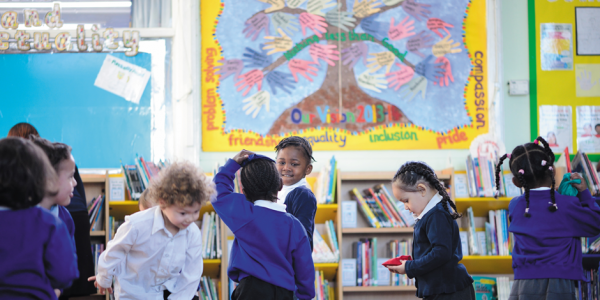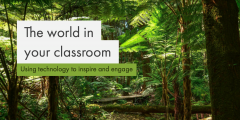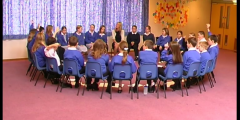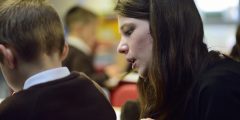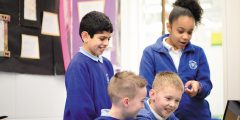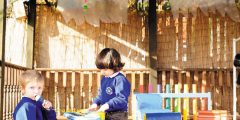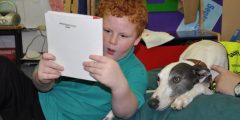How to make the world a better place: teach children how to think
July 6, 2018
Teachers generally believe that education can make the world a better place, but we need to realise there is some good news, and some bad news about this. In this post, John Perry reflects on the place of thinking skills in our schools. Firstly, some good news: schools are improving. More children achieve more highly …
The world in your classroom: using technology to inspire and engage
June 4, 2018
Technology is increasingly prevalent in schools but not necessarily used to best effect as a learning resource, as noted in an international context by the OECD in this 2015 report. In this post, Rachel Walker from Sneinton C of E Primary School in Nottingham shares her experiences of using technology in a productive way. I …
Why Philosophy with children?
April 25, 2018
In this post, Sally Betteridge considers the benefits of doing Philosophy with children and shares her experiences. Is it a ‘nice’ added extra or an essential part of children’s education? Children taking part in Philosophy lessons has been an area of discussion for many years. With an already very busy Primary curriculum it’s not …
Teachers and research evidence: building engagement
March 19, 2018
The move towards a research-engaged teaching profession, working in an evidence-informed way seems to be gaining momentum. The recently established Chartered College of Teaching, highlights as one of its three central aims well informed teachers, with access to ‘high quality research’ and promotes this through its own journal, database and research summaries; meanwhile, the teacher-led …
Realising the wider purpose of teaching Modern Languages through integrative approaches
February 16, 2018
Language learning is now compulsory in primary schools in England. Although the move may initially have appeared as a bold one in 2014, when compared to earlier practice, much work developing capacity in primary schools preceded the change in policy. And much work continues to ensure the delivery of languages is maximised for the benefit …
Mathematics Shanghai style
January 16, 2018
Three things I learnt from a mathematics lesson study during the Shanghai-England Primary Teacher Exchange The Exchange During November, the latest leg of the Shanghai-England primary exchange took place. This is the fourth year of an exchange of primary teachers organised by the Department for Education through local Maths Hubs. In September, two primary …
Finding a place for inquiry
December 5, 2017
The OECD have just published the results of the latest PISA survey on collaborative problem solving. In the accompanying editorial, its educational director, Andreas Schleicher points to the importance of communication-intensive activities in promoting effective collaboration and thereby preparation for a rapidly changing world of work. This is echoed by groups like the Partnership for …
The Never-Ending Story of EYFS Assessment
November 6, 2017
In this post Philip Hood offers a perspective on EYFS assessment plans. In September in this blog series Helen Victoria Smith wrote about school readiness and aspects of the assessment system in the Early Years Foundation Stage. Since then the government has published a response to the Primary Assessment Consultation. You can see the full …
How dogs could make children better readers
October 2, 2017
In this post, which has previously appeared on The Conversation’s site, Gill Johnson considers the use of dogs within education as a way of promoting reading. (Bark and Read – H.Hudson / The Kennel Club) Issues around children learning to read are rarely out of the news. Which is hardly surprising – becoming a …
What do we mean by school-ready?
September 4, 2017
This September, most 4 year old children in the UK will start school for the first-time. Due to the offer of free childcare places for all 3 to 4 year olds, most of these will have experienced being in some sort educational environment although these will differ greatly. In addition, their home experiences …

